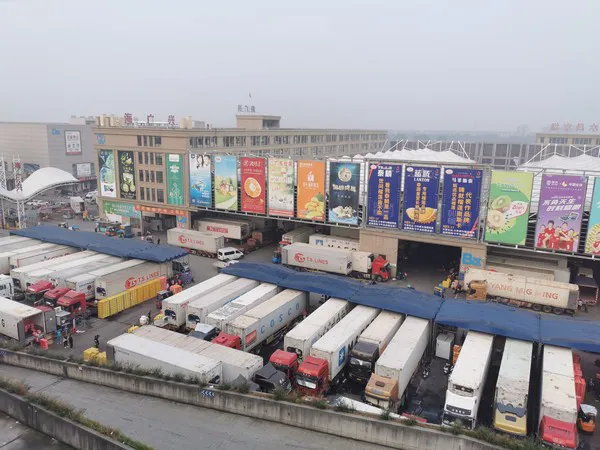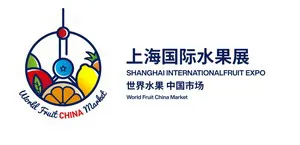The import fruit market in China suffered from an incident with imported cherries that tested positive for Covid-19. Many exporters wonder how the Chinese market will develop now that the Chilean cherry season is over. Mr. Huang of the Shanghai International Fruit Exhibition committee recently shared his insights into current market trends.
The cherry season is over and traders are calculating their profits and losses
The market conditions for import cherries were quite good when they first entered the market. However, the number of regular flights and chartered flights was smaller than usual because of the Covid-19 pandemic. The market supply volume was insufficient and the wholesale price of air freight cherries went as high as 2,000 yuan [309 USD] per box.
Although the initial price of sea freight cherries in early January was 25% lower than around the same time last year, that changed when Chinese Spring Festival [12 February, 2021] approached. Both the supply volume and the market price began to rise. Then the 'cherry incident' occurred on January 23rd. A shipment of imported cherries tested positive for Covid-19 and consumer trust in imported cherries dropped. Chinese wholesale markets were unable to sell their cherries for several days. Wholesale traders were forced to drop the price and dump their stock to stimulate trade.
Only after trade resumed were wholesale traders able to slightly raise their price. Buyers were hesitant, so suppliers had to keep their prices low to keep the products moving. When Spring Festival arrived, the government implemented a policy of 'local celebration', which stimulated the prices in larger cities. The price increase gave people in the industry some hope.
Specialists asked the public to treat the 'cherry incident' with reason, but consumers remained wary. In addition, many retailers had their own hesitations. If a shop tests positive, then the retailer has to destroy all their stock and the personnel has to go in quarantine. That is a huge risk for smaller retailers. Only the low price of cherries convinced retailers and served to stimulate the cherry trade. Keeping the price low has made the cherry season complicated for cherry importers and exporters. How to distribute the financial loss of low prices is an issue that importers and exporters discuss among themselves.
The darkest hour of the import market has already past
When asked about the impact of Covid-19 on the Chinese fruit market in the first half of last year, Mr. Huang replied, "the outbreak of Covid-19 was very sudden. People's expectations for the duration of the pandemic constantly changed. Initially people thought two weeks was all it would take, but that quickly turned into two months... overall market demand declined because restaurants were closed and distribution was hindered by anti-Covid-19 measures. However, international purchases are often scheduled in advance and so the shipments continued according to plan. Ports could not handle regular traffic and many importers suffered financial loss."
Mr. Huang also commented on market developments this year, "I think that the darkest hour is already over for the import fruit market in China. First, the transmission of Covid-19 is more easily stopped when the weather warms up. And more and more people are now being vaccinated. Some of the braver importers have received vaccinations and are now resuming their visits to overseas production areas. And the conditions in China are much better now than they were around this time last year."
Foreign companies with subsidiaries in China can better stand out
The Shanghai International Fruit Exhibition will take place in August this year. According to Mr. Huang, many overseas guests may not be able to visit because of the Covid-19 situation in their own countries. However, the exhibition will take place according to the original plans. Domestic importers, wholesale dealers, retailers, and planters will gather in Shanghai. After all, China has many excellent domestic fruit suppliers and there will be plenty of opportunity for commercial deals.
Overseas suppliers with branch offices in China will have a market advantage under these conditions. For example Zespri, Dole, Driscoll, and T&G all have confirmed participation in the exhibition. Some other overseas brands have asked their Chinese partners to represent them, for example Nature South and Bollo.

"Chile values the Chinese market. The Chilean Fruit Exporters Association works closely together with the Shanghai Exhibition. Chile is one of the 'guest organizers'. The relevant government departments in New Zealand and New South Wales (Australia) have also confirmed that they will set up a stand at the exhibition," said Mr. Huang.
"Fruit distribution is a very old-fashioned industry. This industry depends on people. The exhibition is not just an occasion to showcase products and brands, but a social occasion for people in the industry to connect. As the Chinese fruit market flourishes, the exhibition in Shanghai is turning into one of the main annual events for the global fruit industry."

For more information:
Mr. Huang
Tel.: +86-13361958066
E-mail: everflourish@fruitexpo.cn
